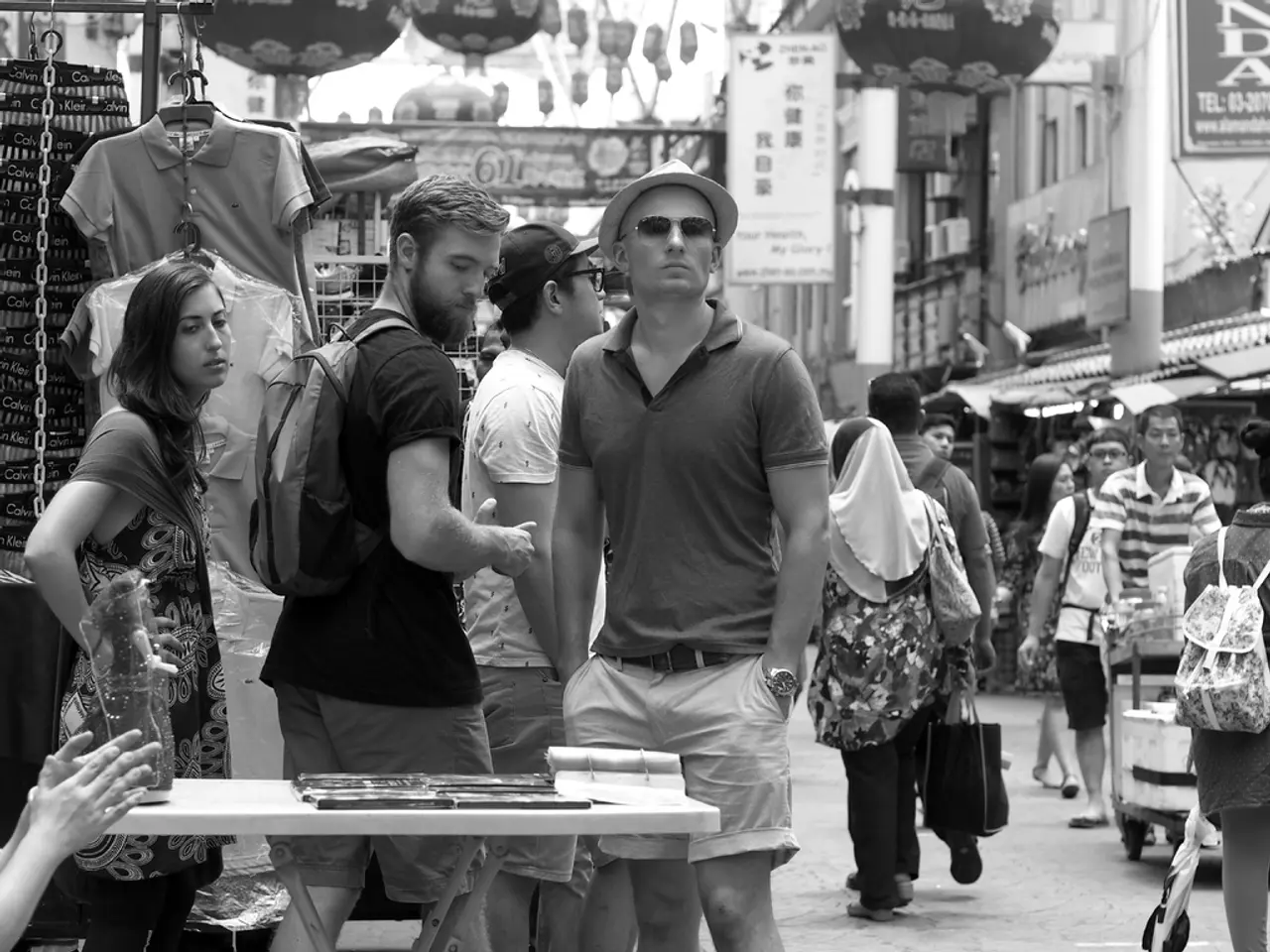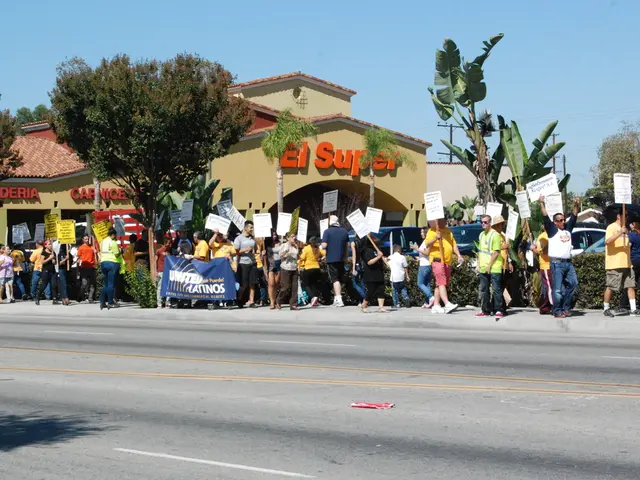Controversial Debates Over Street Vending in the District of Flushing, Queens
In the bustling heart of Flushing, Queens, street vending has long been a common and ongoing activity. The vibrant and culturally rich neighbourhood, dating back to the 1600s, is home to over 50% of the city's population who are immigrants[1]. However, the state of street vending in Flushing is far from straightforward.
A key regulation that has impacted street vending in Flushing is the 2018 legislation Int 0969, sponsored by City Council Member Peter Koo. This bill prohibited street vending in many places, including downtown Flushing and Main Street, especially after its sidewalks were widened to nine feet to improve pedestrian flow[1].
Challenges persist, despite these regulations. Congestion and parking issues arise due to vendors parking all day on busy streets like 82nd Street, making parking and traffic flow difficult for customers and residents[1]. Ongoing concerns about cleanliness and sidewalk maintenance also plague the area[1]. Tensions also surface between street vendors and brick-and-mortar businesses, with local businesses supporting vendors only in limited numbers, fearing that unrestricted vending harms their customer flow and economic viability[1][2].
Illegal vending remains a persistent problem, despite enforcement efforts by the city. Such vendors can be found in areas including Flushing’s Main Street and nearby neighbourhoods, creating "whack-a-mole" enforcement challenges[2].
New York City Council member Sandra Ung has made illegal street vending in Flushing one of her main priorities. Victoria Lu from the Street Vending Project at the Urban Justice Center stated that vendors want to operate legally but currently cannot due to the scarcity and difficulty of getting a vending license[3].
In an effort to address these issues, the Street Vending Project is working on proposing four new bills to help street vendors in New York City. These bills aim to educate vendors, make more licenses available, amend curb traffic laws, and decriminalize vendors[3]. The project continues to work with the city, DWCP, and NYPD to resolve differences and improve the structures of street vending.
In conclusion, Flushing’s regulations focus on limiting street vending in congested, pedestrian-heavy zones to promote access and support established businesses. However, challenges remain related to compliance, enforcement, and balancing economic needs of all stakeholders[1][2]. As discussions among community leaders and business improvement districts (BIDs) continue, finding a balance that respects the cultural significance of street vending while ensuring a safe and accessible environment for all remains a top priority.
References: 1. Flushing Street Vendors: A Look at the Ongoing Debate 2. Flushing Street Vendors: City Councilwoman Sandra Ung Vows to Crack Down on Illegal Vendors 3. The Street Vending Project
- The 2018 policy-and-legislation Int 0969, introduced by City Council Member Peter Koo, has restricted street vending in downtown Flushing and Main Street, contributing to the ongoing debates about the activity's regulation in the neighborhood.
- News about the limitations imposed by Int 0969 and the struggles of street vendors to operate legally have been widely reported in general-news sources, highlighting the tension between vendors and brick-and-mortar businesses in Flushing.
- Recognizing the need for reform, the Street Vending Project, led by Victoria Lu, is advocating for changes in policy-and-legislation to create a more supportive environment for street vendors in New York City, aiming to educate them, offer more licenses, amend curb traffic laws, and decriminalize vendors.




